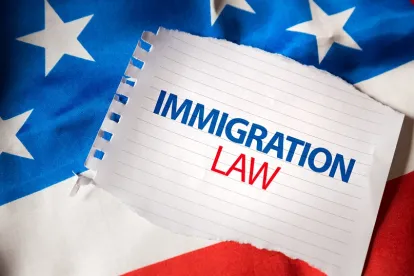This alert was updated on December 5 to reflect updates made by the U.S. Department of Labor on December 4.
The U.S. Department of Labor has announced updates to recent H-1B visa regulations after U.S. District Judge Jeffrey White ruled on December 2 that the DOL and Department of Homeland Security could not use the “good cause” exception to bypass regulatory notice and comment period to impose new rules.
The DOL and DHS had suddenly imposed new rules that required U.S. employers to significantly raise wages for highly skilled foreign workers, which would impede companies’ ability to hire or retain workers from outside the U.S. Judge White set aside the new rules and in response the DOL updated the rules on December 4. Updates include:
-
As of noon Eastern Time, the DOL prevailing wage data (https://www.flcdatacenter.com) has been updated to reflect the old data that was in effect on October 7, 2020 (valid through June 30, 2021).
-
Employers and their authorized attorneys or agents are temporarily unable to submit Labor Condition Applications for processing (where DOL wage data is the prevailing wage source) as DOL works to automate the system to allow for the prior wage data.
-
Beginning around 8:30 a.m. Eastern Time, on December 9, 2020, employers and their authorized attorneys or agents will be able to submit new Labor Condition Applications using the DOL wage data that was in effect on October 7, 2020.
-
DOL has temporarily paused processing pending Prevailing Wage Determinations. However, employers and their authorized attorneys or agents may continue to file new requests for a Prevailing Wage Determination at any time.
-
Beginning around 8:30 a.m. Eastern Time on December 15, 2020, DOL will resume processing all pending and new Prevailing Wage Determinations and will use the DOL wage data that was in effect on October 7, 2020 (where the DOL wage data is the prevailing wage source).
-
For any Prevailing Wage Determination issued using the wage data that was implemented under the DOL interim final rule, DOL will not affirmatively go back and reissue these determinations. Rather, employers and their authorized attorneys or agents may make a request for review by the NPWC Director under 20 CFR 656.41 no later than January 4, 2021, and the Director will consider such request timely under 20 CFR 656.41(a).
In Chamber of Commerce, et al., v. DHS, et al., the U.S. District Court in California has set aside an interim final rule significantly altering prevailing wages to be paid to certain temporary and permanent foreign workers (Strengthening Wage Protections for the Temporary and Permanent Employment of Certain Aliens in the United States) and an interim final rule which would have significantly tightened the eligibility criteria for an individual to qualify for an H-1B visa (Strengthening the H-1B Nonimmigrant Visa Classification Program). The Court found neither agency satisfied the good cause exception that would justify bypassing the required notice and comment period in the rulemaking process.
The Department of Labor (DOL) announced the Strengthening Wage Protections for the Temporary and Permanent Employment of Certain Aliens in the United States interim final rule on October 7, 2020, effective October 8, 2020. This rule adjusted the prevailing wage percentiles for the four-tiered wage level system, thereby significantly increasing the prevailing wages assigned to occupations under this system.
|
Level |
Current Percentile |
Amended Percentile |
|
I |
17th |
45th |
|
II |
34th |
62nd |
|
III |
50th |
78th |
|
IV |
67th |
95th |
As a result of this rule, the prevailing wages in some occupational categories increased by $30,000. For example, prior to this change, the Level 1 entry-level prevailing wage for a Software Developer, Applications, in Wayne County, Michigan, was $63,315/year. Under this rule, the Level 1 entry-level wage for a Software Developer, Applications, in Wayne County, Michigan, would have increased to $93,184/year. In some categories, a default prevailing wage of $100/hour or $208,000/year was assigned.
DOL justified this change by arguing that the existing wage levels were artificially low and created an opportunity for employers to hire and train foreign workers at wages below the wages paid to similar U.S. workers, thus creating an incentive to prefer foreign workers over U.S. workers, which would in turn depress the wages of the domestic workforce.
DOL invoked the good cause exception to the notice and comment requirement, arguing the shock to the labor market caused by widespread unemployment due to the COVID-19 pandemic created exigent circumstances that threatened immediate harm to wages and job prospects of U.S. workers, and that advance notice of changes would create an opportunity and incentive for employers to attempt to evade the adjusted wage requirements.
The Department of Homeland Security (DHS) announced the Strengthening the H-1B Nonimmigrant Visa Classification Program interim final rule on October 8, 2020, effective December 7, 2020. This rule made a number of changes to the H-1B visa program, including a revision to the definition of "specialty occupation," the "employer-employee" relationship, and a reduction of the approval period for H-1B workers employed at third-party job sites from three years to one year.
DHS justified this change by arguing that the changes were necessary to strengthen the integrity of the H-1B program during the economic crisis caused by COVID-19 to ensure employment of H-1B workers does not adversely affect the wages and working conditions of similarly-employed U.S. workers. DHS also invoked the good cause exemption, citing the pandemic conditions which caused unemployment rates to skyrocket from a historical low to the most extreme unemployment ever recorded, as justification.
In setting aside both rules, the Court noted that neither agency took any action for six months, so neither agency could rely on the good cause exemption. The Court also noted that the DHS's regulatory agenda had some semblance of the DHS rule since 2017, and that reviewing the prevailing wages has been part of the current administration's agenda since April 2017. The Court noted that the good cause exemption must be narrowly construed, and that the appropriate focus on how the pandemic impacts domestic unemployment should be on the types of positions held by H-1B workers. Finally, the Court noted that the H-1B visa requires that the position offered to the H-1B worker requires a minimum of a bachelor's or higher degree or its equivalent.
Based on this record, the Court found the evidence regarding unemployment rates most relevant to H-1B workers did not show a "dire" emergency, as the unemployment rate for workers with bachelor's degrees was 4.8% in September 2020. Therefore, despite the COVID-19 pandemic, there was no economic emergency to bypass the notice and comment period required by the APA. The Court was "not persuaded that DOL demonstrated the impact of the COVID-19 pandemic on domestic unemployment in sectors where most H-1B workers are employed is so dire that immediate changes to the prevailing rates were required, especially given the scope of those changes."
As both interim final rules have been set aside, DHS will continue to adjudicate H-1B petition filings under the existing regulatory and statutory framework currently in place and will not apply the revised definition of "Specialty Occupation," nor will it be required to limit the approval period for H-1B workers employed at third-party job sites at one year.
As of the date of this writing, the prevailing wage structure and prevailing wages in effect since October 8, 2020, are still posted on the DOL website. Employers may consider filing new Prevailing Wage Determinations (PWDs) for determinations issued between October 8, 2020, and December 1, 2020, as it is not certain that DOL will affirmatively go back and reissue these determinations based on the old wage data prior to the DOL rule. We will continue to monitor this issue and provide updates as soon as they become available.
This information is based on the facts and guidance available at the time of publication and may be subject to change.






 />i
/>i
